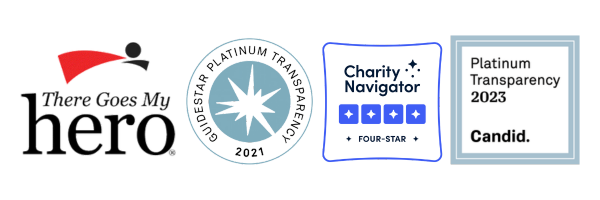Abbie Edwards’ Story
A flashbulb memory in psychology is when one can remember a significant event in their life in vivid detail, usually when shocking news occurs. For me, this moment occurred on a random day in October of 2013. I was in third grade getting ready for school with my twin sister when the house phone rang. Curious about the early morning call, my sister and I ran up to our dad, eager to listen in on the conversation. As we watched, we saw the color drain from his face and knew something was very wrong. After a brief exchange, the gravity of the situation became clear when he said that my twin sister might have cancer.
Being kids, we only knew that cancer made people very sick and that you could die from it, so you could imagine the fear inside of us. Within 30 minutes, my whole extended family was at our house, all in tears, scared about what would come next. That day, my identical twin was diagnosed with chronic myelogenous leukemia (CML), a rare blood cancer that is usually found in adults that can be managed with medication.
But our ordeal didn’t end there. Despite Ava being on medication, the summer of 2014 brought even more devastating news: Ava had developed acute lymphoblastic leukemia (ALL), a far more aggressive cancer that would require a bone marrow transplant to save her life. That summer, Ava received many treatments, including chemotherapy and radiation, to prepare her for her transplant in September, meaning she would not be able to go back to school.
Being the only children my parents had at the time, returning to school was particularly tough for me. Ava and I were inseparable, and I was naturally very shy. Suddenly, all the attention seemed to be on us, and I had to explain repeatedly why my sister wasn’t there. I found myself having to grow up quickly to help support my family during this challenging time. I started walking home alone from school, tucking myself in at night, styling my own hair, and preparing my own breakfast. The stark contrast of driving to Baltimore every evening to visit Ava and my mom only made our family’s division feel more profound. As Ava got closer to her transplant date, she needed to be careful who she was around because she was immunocompromised. This meant I had to limit seeing her, and she was not allowed to have any other visitors, even my grandparents.
Ava received her transplant on September 26, 2014, thanks to a donor in California who signed up for the bone marrow registry. Post-transplant, Ava and my mom lived in an apartment just minutes from the hospital, but each visit felt fraught with danger. Any hint of illness on my part could jeopardize her recovery. Every slight fever or ailment sent us rushing to the hospital, and for 100 days, this became our new normal. For Christmas that year, Ava got to come home but we had to forgo our usual Christmas plans to keep Ava healthy. Fortunately, from then on, Ava continued to get better gradually and was back in school just a year after her transplant, and as of September 2016 she has been in complete remission.
As a kid, watching someone so close to you go through this experience was terrifying and has had a profound impact on my life in so many ways. I am thankful for the community around me that helped my family through this difficult time. One of my biggest supports was a summer camp called SunSibs where siblings of pediatric cancer patients get to connect. Being able to connect with people who have a similar, unique experience to you makes you feel not alone and offers a sense of comfort and life-lasting friendships.
The experience inspired me to turn adversity into opportunity. I decided to pursue a career in medicine to help others facing similar battles. I transformed my academic performance moving from ‘B’ and ‘C’ grades to straight ‘A’s and graduated high school with a 4.0 GPA. Currently, I am an honors student at the University of Maryland, majoring in Pre-med. If it was not for this experience, I would have not learned how life is so precious and the rewards of helping others. This experience has also allowed me to further connect with my community and pushed me to give back. Interning at There Goes My Hero is rewarding for me as I get to help save the lives of others, like my sister, as I know firsthand how hard it is to go through this and how significant signing up for the bone marrow registry can be. If my sister’s donor had not registered, my life would not be the same it is today.
